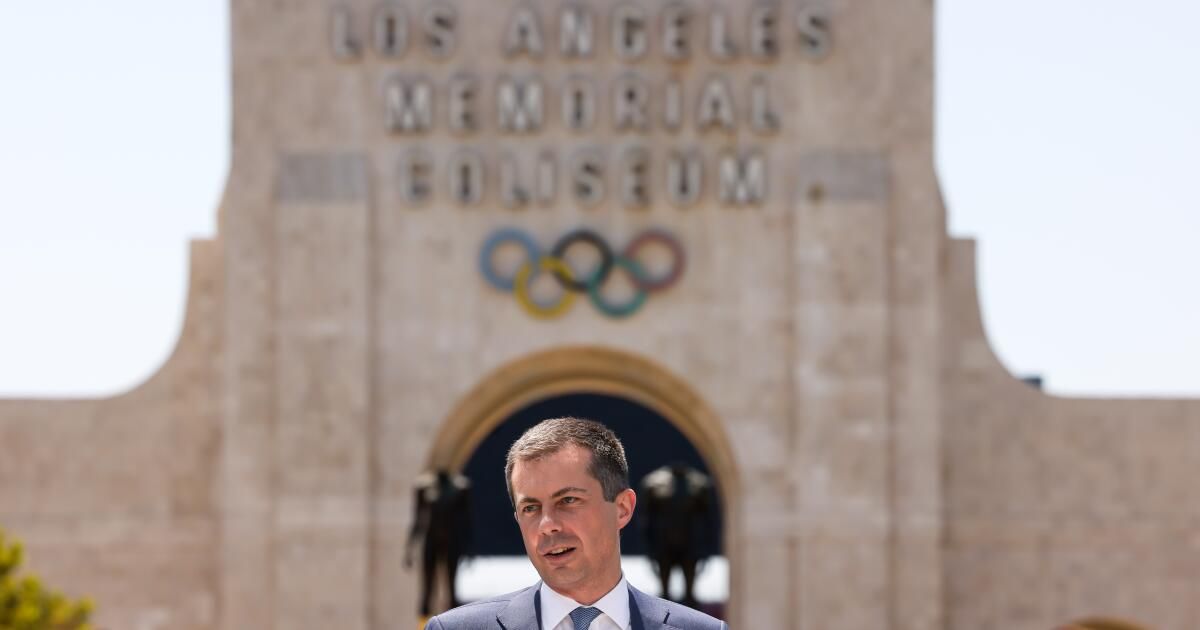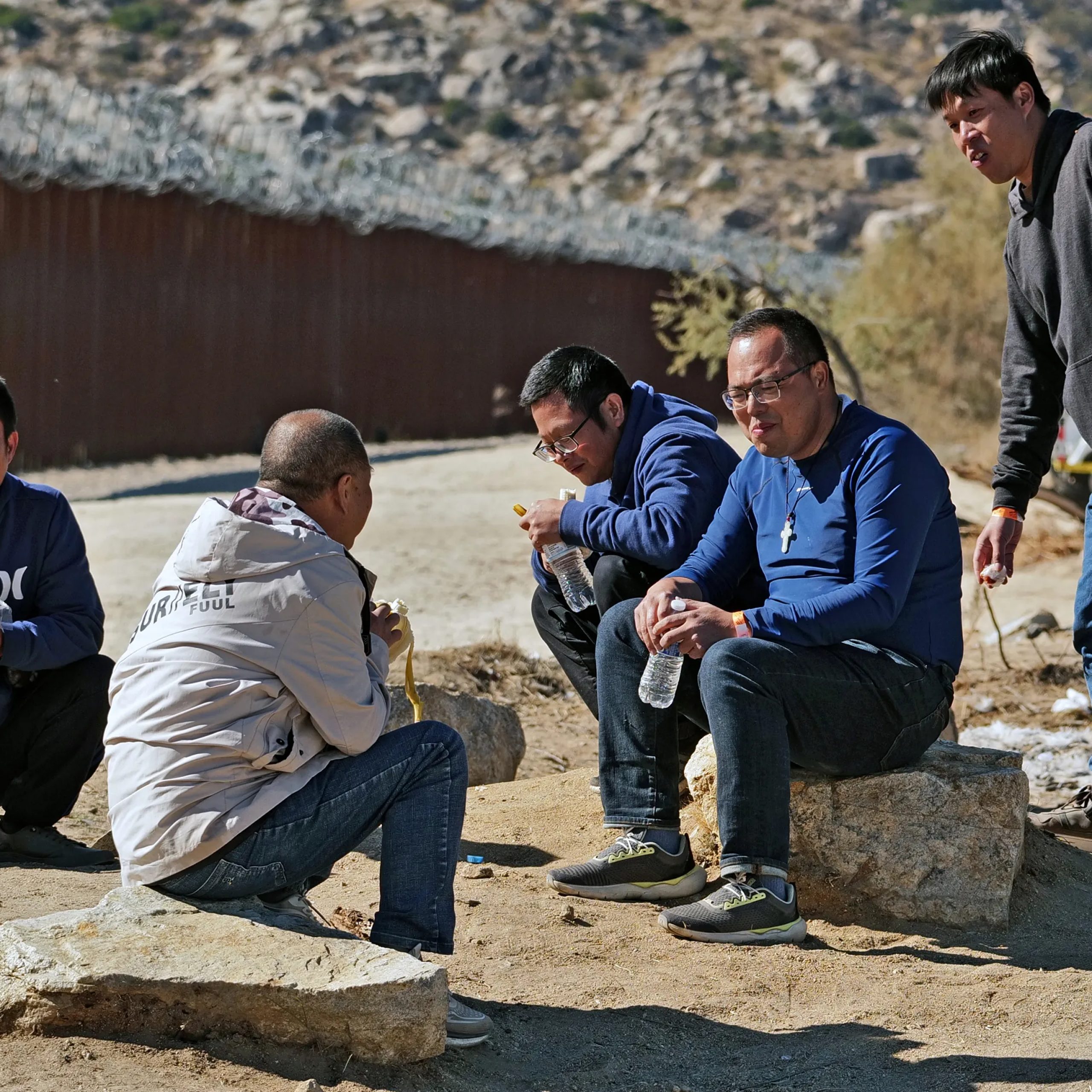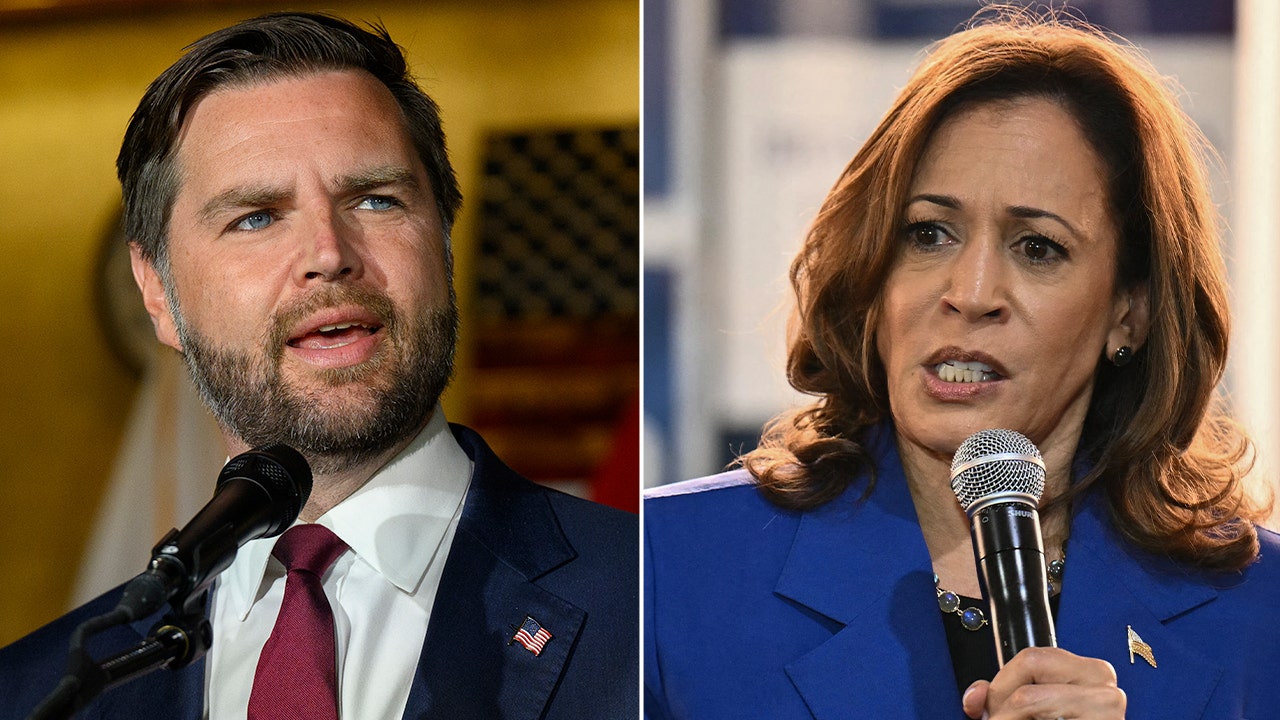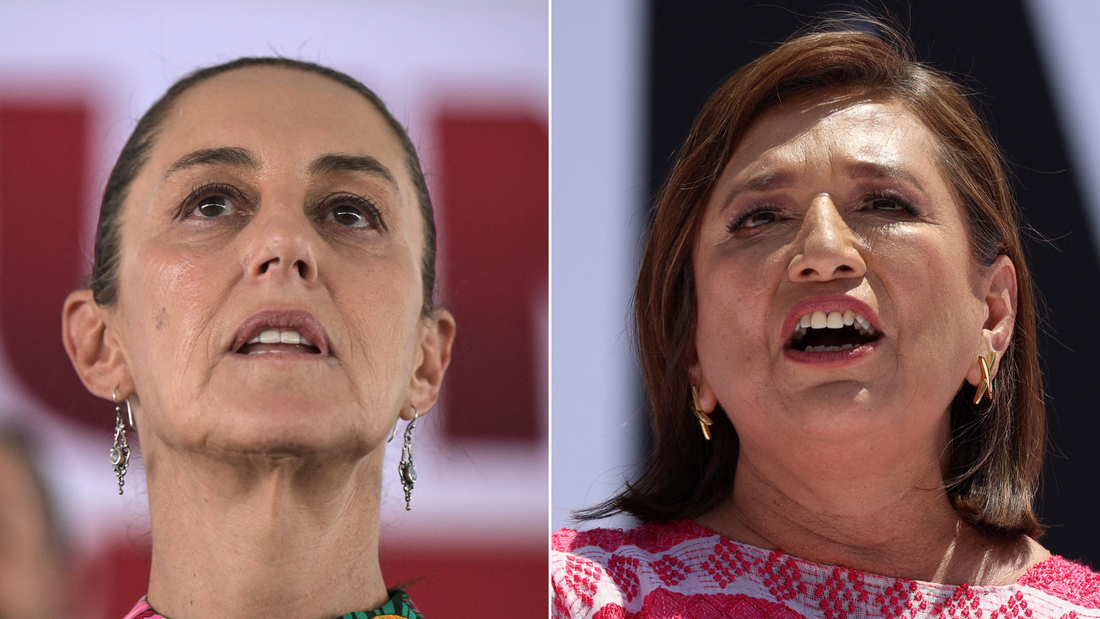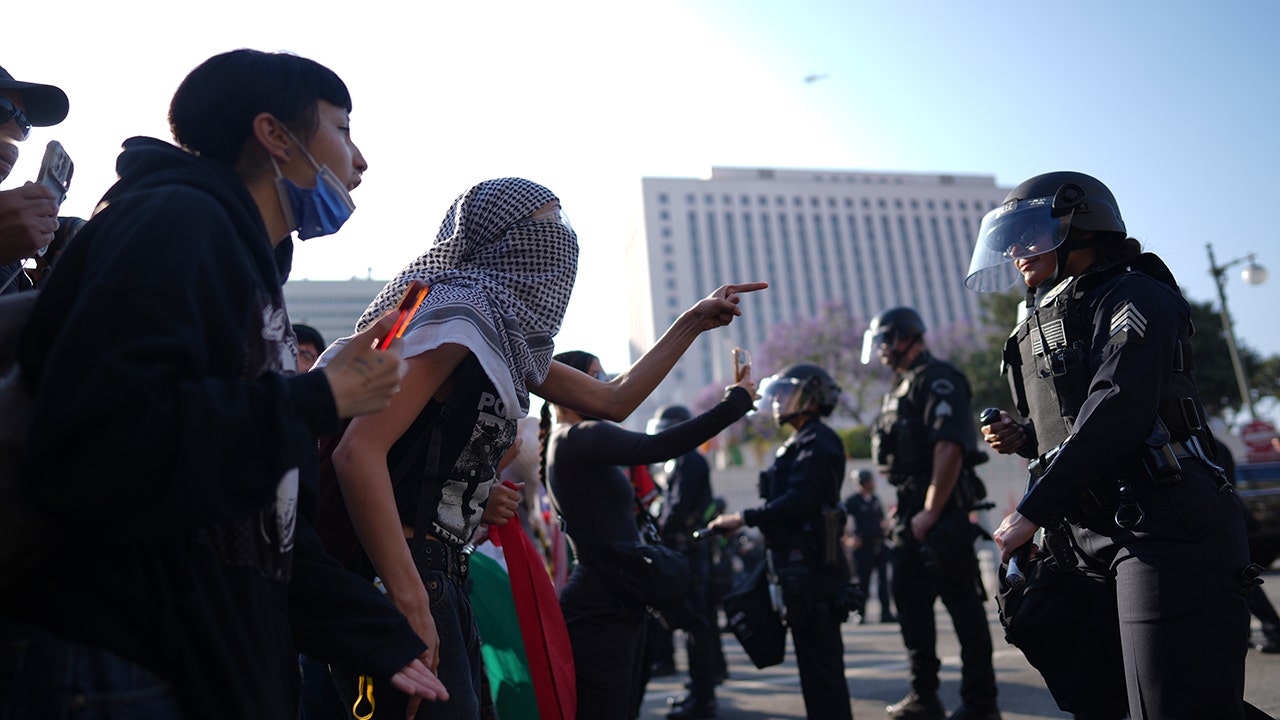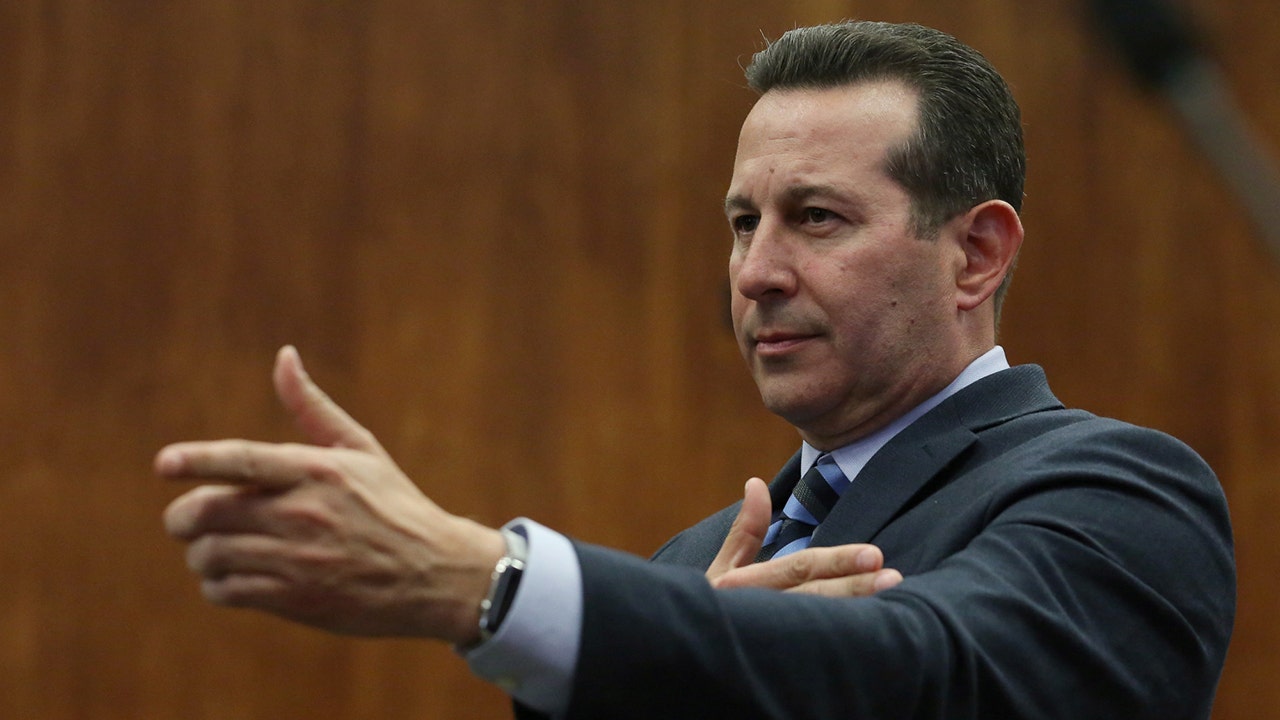Standing in front of the famed peristyle of the Los Angeles Coliseum, where the opening ceremony of the 1984 Olympics was held, Transportation Secretary Pete Buttigieg on Thursday touted a $77 million cash infusion for Metro to pay for more electric buses.
The buses will help ferry tens of thousands of fans around the city in what is being billed as a transit-first Games and are among the thousands of details officials must iron out before Los Angeles hosts the 2028 Olympics. The influx of money helps a broader effort by the Metropolitan Transportation Authority, which is seeking to convert its fleet of more than 2,000 buses to all-electric by 2030.
“Angelenos and Olympic athletes will know how efficient public transportation can be in this region. This is an investment in the future,” said Buttigieg, joined by Mayor Karen Bass, LA28 President Casey Wasserman and other officials who are looking ahead to the Paris Olympics, which begin this month as the countdown begins in Los Angeles.
MTA aims to procure battery-electric buses, charging equipment and supporting infrastructure to operate reliable, zero-emission services spanning multiple cities within Los Angeles County.
Buttigieg spent the day in Los Angeles riding the subway, hopping on trains, taking buses and touting the funding the region had received as part of the Biden administration’s trillion-dollar infrastructure bill, which has pumped millions of dollars into the expanding Metro rail system and the port, as well as jump-starting new projects. But most L.A. officials had their minds set on the 2028 Olympics, with the Paris Games just days away.
More than a million people are expected to descend on the Los Angeles region for the 17-day Olympics, and organizers want them to reach the venues by public transportation, on foot or by bike. It's a big feat for a sprawling metropolis known for its congested freeways. So local leaders have used the Olympics to add urgency to their wish lists, like the fleet of electric buses. That strategy has raised some funding, but it won't solve the logistical puzzle of moving large crowds of tourists day after day.
Metro has asked the Biden administration for an additional $319 million for next year to cover Games-related costs, including $45 million to plan and design the complementary bus system that will take fans to the venues and $14 million to design routes for athletes and other VIPs.
Buttigieg said he couldn't “get ahead of the White House” but that his department had been providing technical support to members of Congress who are evaluating how to support the Olympics with funding.
But so far, there has been no commitment. Mayor Bass, who will travel to Paris next week for the Olympics, said she was confident that President Biden, who faces a tough campaign, would help Los Angeles.
“The White House has been supportive from day one,” she said Thursday in a grassy area outside the Coliseum. “There is a staff member there who is focused on the Olympics and who we stay in constant contact with. So I am very encouraged.”
Then-Mayor Eric Garcetti, who secured the 1928 Games, pitched them to the public as a monumental event that would generate millions rather than a burden on taxpayers. But transportation is proving difficult. The cost of doubling the number of buses so fans can better navigate the city by public transport is estimated to exceed $1 billion.
And the buses purchased with the federal grant won’t expand the fleet or help the agency meet its goals of switching to electric. There are too many obstacles to that happening, including a lack of chargers and a small pool of manufacturers that can deliver electric buses.
For now, Bass and many other members of the Metro board, which includes the Board of Supervisors, will head to Paris to observe how the city handles the Olympic and Paralympic Games.
And they are in wait-and-see mode when it comes to funding.
Incoming Metro Executive Board Chairwoman Supervisor Janice Hahn said she and Bass promoted Buttigieg while riding the B Line Thursday, emphasizing that the federal government should help with the Olympics.
“We wanted to show that we shouldn’t act alone,” he said. “We could use federal funds to help us.”
City News Service contributed to this report.

